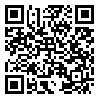BibTeX | RIS | EndNote | Medlars | ProCite | Reference Manager | RefWorks
Send citation to:
URL: http://rehabilitationj.uswr.ac.ir/article-1-794-en.html
Objective: The aim of this study was to consider the effectiveness of Applied Behavioral Analysis (ABA) therapy and Treatment and Education of Autistic and related Communication handicapped children (TEACCH) on stereotyped behavior, interactional and communicational problems in the autistic Children.
Materials & Methods: Subjects of this experimental study were all of children in Tabriz autism school in second half of year 1388. Sample size was 29 children (21 boys and 8 girls) in age range of 6-14 who were selected using random sampling method and were placed in Applied Behavioral Analysis group (8 boys and 2 girls), Treatment- Education group (9 boys and 1 girl), and control group (4 boys and 5 girls). The two scales applied for the study were Modified Checklist for Autism in Toddlers and Gilliam Autism Rating Scale. The data were analyzed using analysis of covariance.
Results: The results of the research showed that the means of behavioral problem indicators in both ABA and TEACCH methods were reduced significantly in comparison with control group (P<0.01). Also in comparison of ABA therapy and TEACCH method, decline in the mean scores of communication problems was significant and in favour of ABA therapy (P<0.05).
Conclusion: According to the results of study, although both ABA therapy and TEACCH method were effective in reducing symptoms of behavioral problems but because of being more effective, Applied Behavioral Analysis is suggested as a selective therapeutic approach for this research.
Received: 5/04/2011 | Accepted: 10/07/2012 | Published: 15/10/2015
| Rights and permissions | |
 |
This work is licensed under a Creative Commons Attribution-NonCommercial 4.0 International License. |





